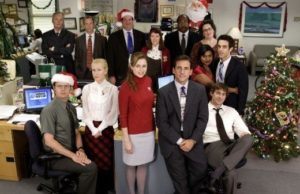Twas the day before Christmas and all through the office
Executives were counting their profits and losses.
The finances were posted on the intranet with care,
In hopes that bonuses soon would be there.
The bosses were nestled all snug in their high-priced threads,
While visions of more danced in their heads.
 In the spirit of the holidays and year-end it reminded me of how much we focus on, or obsess over, more. We expect our corporate vision statements to express how we want to achieve more, we write New Year’s resolutions that describe how we will do more, and as we balance our checking accounts we long for just 10% more so that we can be really happy.
In the spirit of the holidays and year-end it reminded me of how much we focus on, or obsess over, more. We expect our corporate vision statements to express how we want to achieve more, we write New Year’s resolutions that describe how we will do more, and as we balance our checking accounts we long for just 10% more so that we can be really happy.
It’s interesting that while our culture tends to be fixated on how we can get more, more is not always everything we assume it’s cracked up to be.
In Jim Collins’ book, How the Mighty Fall, he determined (through extensive research) that stage two of how the mighty fall is the undisciplined pursuit of more. More scale, more growth, more acclaim, more of whatever those in power see as “success.” Collins says, “Discontinuous leaps into areas in which you have no burning passion is undisciplined. Taking action inconsistent with your core values is undisciplined. Investing heavily in new arenas where you cannot attain distinctive capability, better than your competitors, is undisciplined. Addiction to scale is undisciplined. To compromise your values or lose sight of your core purpose in pursuit of growth and expansion is undisciplined.”
It is not my intent to end the year on a low note, in fact, it’s the contrary. As leaders make plans for a new year, for both themselves and their organizations, what if they were to think beyond more? What would their visions and goals for 2017 look like if they didn’t start from the vantage point of more?
Tom Rath and Barry Conchie co-authored Strengths Based Leadership. Their research uncovered what employees are really looking for in their leaders, and you guessed it, it’s not the pursuit of more. What employees want and need from the most influential leaders in their lives is: trust, compassion, stability, and hope. Seems much more aligned with the holiday season, doesn’t it? Maybe it should sound more like this:
Twas the day before Christmas and all through the office
Executives were envisioning their dreams and their promise.
To model trust, compassion, hope, and stability
By not withholding their own vulnerability.
Employees are trusting their compassionate leaders
While visions of hope and stability make them believers.